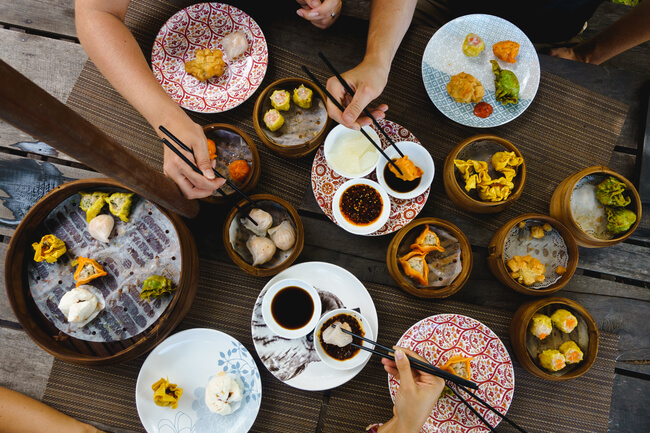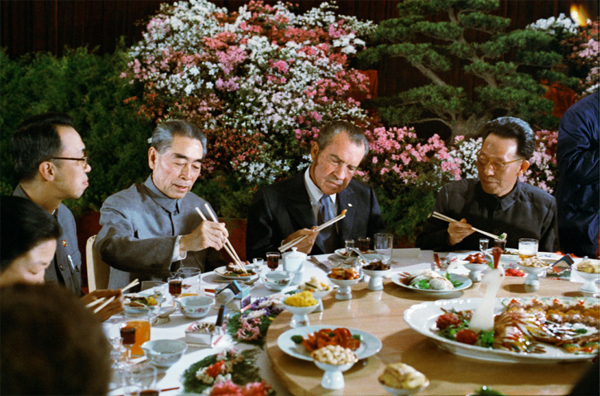20 Good Facts To Uncover China Food Traditions
Top 10 Tips For Shopping In Street Markets In China1. Arrive EarlyTip. Visit markets early in the morning when vendors set up. They may offer better prices to make their initial sale.Pro: Shopping early gives you a wider selection and more bargaining power.Cons: You need to start your day early. This may not work for every travel time.
2. Bring CashTip: Most street market vendors prefer cash, although mobile payment options such as WeChat Pay or Alipay are increasing in popularity.Cash payment can ease transactions and can give you more leverage during negotiations.Con: Carrying cash increases the likelihood of theft or loss in areas with high traffic.
3. Learn Basic MandarinBe familiar with phrases like "Zhege qian duoshao?" (How Much is this?) or "Pianyi Yidian Ba" (Can you reduce the cost?) It can help you effectively communicate.Pro: Creates relationships and respect with vendors.Con: A lack of vocabulary may allow for miscommunications.
4. Be sure to inspect your belongingsBe sure to inspect all items for imperfections or inconsistent quality, particularly electronics, clothing and crafts made by hand.Pro: Ensures you get the value you pay for and helps avoid disappointment in the future.Cons: Time-consuming and vendors can become frustrated.
5. Buy ConfidentlyIt is not a bad idea to bargain, since it is common in markets on the street. Begin by reducing the price 50-70 percent.Bargaining is a great way to cut costs.Pro: It's scary to those who aren't used to it.
6. Beware of counterfeitsBeware of buying products with a brand name, such as watches, bags and other electronics. These are usually copyright.Pro: Avoids wasting money on low-quality imitations.Con: Genuine goods are harder to come by and more expensive.
7. Respect Local CustomsUse the locals' shopping, negotiation, and interaction with vendors as a guide to determine your own style of operation.Pro aids in blending into and avoid making cultural missteps.Pro: It takes time to fully grasp the culture.
8. Keep Valuables SecureTip: Keep your wallet and phone in a pocket or anti-theft bag to prevent pickpockets in busy markets.Lowers the risk of theft in areas with significant traffic.Con: Extra measures may seem restrictive or inconvenient.
9. Test before buying (For Food)Take advantage of the fact that a majority of food stores will allow customers to taste snacks and dried goods prior to buying the items.Pro: It will ensure that you are satisfied with the taste and quality of the food.Con: After offering you the opportunity to try their product, some sellers might pressure you to purchase an order.
10. Know the Market Then, focusTIP: Each market has a specialization for example, such as antiques at Panjiayuan Market or souvenirs from Yuyuan Market. You can study your objectives and then align them with the market you're attending.Benefits: You can reduce time by focusing your area of focus.Cons: Your spontaneity is limited if your research is strict.
The benefits of shopping at street marketsUnique Finds You can discover unique items, such local snacks or handmade craftwork which isn't sold in traditional stores.Street markets tend to offer cheaper prices than malls, shops, or shopping malls.Cultural Experience: Getting get to know the vendors and going to markets is an excellent way to get a taste of the local culture.Wide Variety: A single market may provide everything from souvenirs to food and clothing.Pros and Pros and MarketsFalse Goods: There is a high chance of encountering copyright or poor-quality items.Crowds: Particularly on holidays and weekends, markets can be very busy.Vendors who use aggressive tactics: This may overwhelm you.Most purchases can't be returned.By following these tips and being prepared, you will be able to get the most out of China's bustling markets and staying clear of common traps. Take a look at the top explore local Chinese cuisine for blog examples including culinary wonders of China, Chinese cuisine you need to try, a deep dive into China food culture, discover Chinese street food, experience traditional Chinese food, discover China regional dishes, the flavors of Chinese cuisine, Chinese food you must try, culinary tours of China best cities, Chinese cuisine you need to try and more.

Top 10 Tips For Ritual Observances In Temples Of Fame In China
1. Be mindful of the rules of the temple and CustomsTip: Every temple has its own rules. Be sure to follow these rules, especially when entering sacred spaces and participating in ceremonies.Pro: Respects local customs and sacred temple spaces.Pro Cons: The rules are complicated and may be confusing especially in temples.
2. Be Quiet and RespectfulKeep a respectful demeanor and be quiet during rituals or in the temple. Avoid talking loudly or laughing.Pro: Helps create an atmosphere of reverence and peace for worshipers.Con: If you're unfamiliar with local customs and the environment The silence could be uncomfortable.
3. Dress ModestlyTip: Dress respectfully such as long pants, skirts, or dresses, and avoid revealing clothing. Some temples offer wraps or scarfs to protect arms.Pro: Shows respect for the sacred space and its worshippers.Con: You may need to do some additional planning or an outfit when visiting during a hot summer day.
4. Offers RitualLet other people finish their rituals before you begin your ritual.Pro You'll be able to integrate into the society and show respect for the sacred practices.Cons: If you're not sure of the ceremony It may be difficult to take part.
5. Beware of interrupting meditation or prayer.Avoid interrupting worshippers while they are meditating or praying. Do not take photos or engage in conversation while other people are engaged in spiritual practice.Pro: Represents cultural respect and creates a peaceful, reverent environment.Con: Though you might be enticed by the thought of capturing moments, doing so could be a bit unsettling.
6. Lighting of IncenseTip: Chinese temples have a ceremony of lighting incense. Incense is an excellent method to show your gratitude to the gods. Hold the incense between your hands and make small bows as you present it.Pro: Shows that you are actively involved in temple rituals.Con: Incense is difficult to handle for some travelers, and can cause a sense of disrespect.
7. Avoid touching sacred statues or objectsBe careful not to touch sacred statues or Relics. Avoid touching the temple or any relics, unless you've been invited to do so.Pro: Remains in reverence for the temple.Con: It can be confusing if you are unfamiliar with the temple boundaries.
8. Be Aware of Temple HierarchyTips - In certain temples, there are various levels of sacredness. Beware of walking around altars holy statues, sacred shrines or other holy places. Also, be aware of when to bow.Pro: Show that you're aware of temple's rules by keeping a respectful manner and respecting the temple's space.Con: The hierarchy might not always be clear making it more difficult to understand the acceptable standards.
9. Keep Offerings HumbleTip - If you bring gifts such as fruits, flowers, cash or other items., keep it modest. Also, make sure you adhere to local rules. Gifts that are extravagant or expensive could be considered unsuitable.Pro is humble and obedient. He also conforms to local customs.Cons: You may not be sure what type is the best fit for your needs without local guidance.
10. You can attend temple events if you are invitedTips: Some temples have special days, services or rituals. If you're asked to participate be respectful and by adhering to the people.Pro: It connects with local culture, and allows you to explore the temple in a deeper way.Con: Participating in unfamiliar rituals can feel uncomfortable and awkward if the protocol is not followed.
Benefits of observing Ritual Practices in TemplesCultural Immersion: Engaging in rituals can help you better get to know the customs and culture of China.Respectful Interaction: Observing and engaging respectfully creates positive relationships with people in the area and temple personnel.Being involved in religious or spiritual practices can be a rewarding and enriching experience.Temple rituals are an excellent method to create memories.The negatives of following Temple RitualsRituals that are unfamiliar: They can be unfamiliar for those who have never been before, leading to confusion or errors.Cultural blunders: If performed wrong, it could cause offense or confusion.Because of language barriers you might find it difficult to understand rituals or instructions.Physical discomfort: Certain rituals like bowing or sitting for prolonged durations of time may be physically exhausting.By following these guidelines while keeping in mind local customs will ensure that you enjoy a memorable and respectful trip to China's temples. It is also possible to engage in their rituals of spirituality, without offending anyone. Take a look at the recommended regional Chinese cuisine highlights for site examples including explore the best local eats in China, savor China regional food specialties, delicious Chinese dishes to try, journey through China food culture, explore local Chinese cuisine, a taste of China best local foods, must-try foods in China, China culinary heritage, taste the best dishes across China, discover hidden food gems in China and more.
